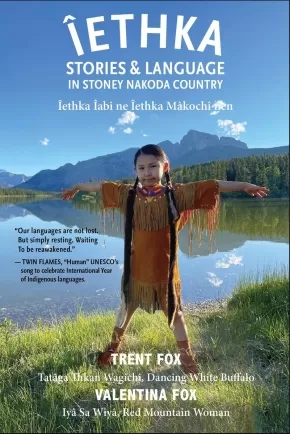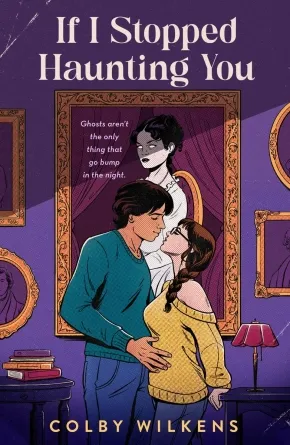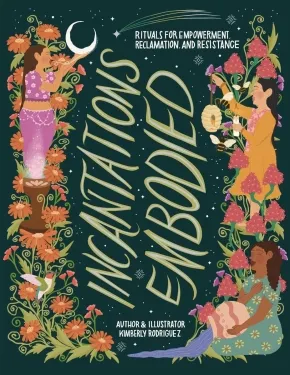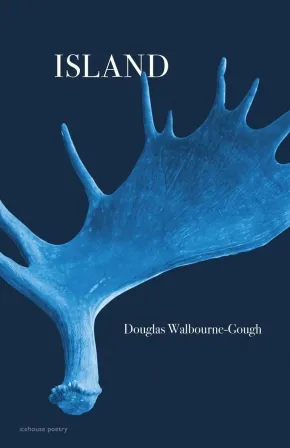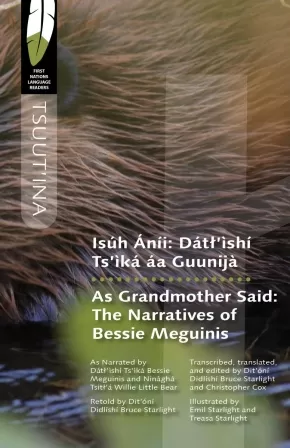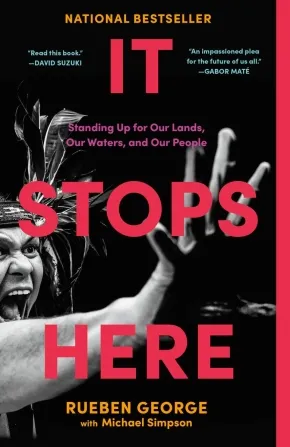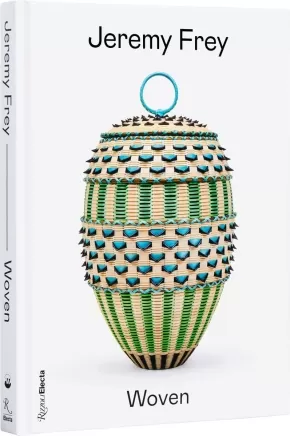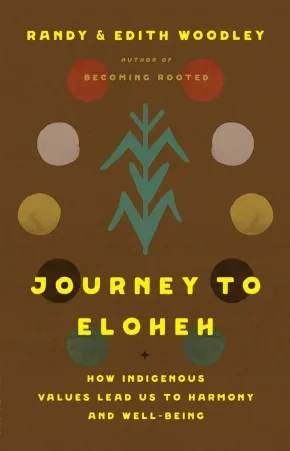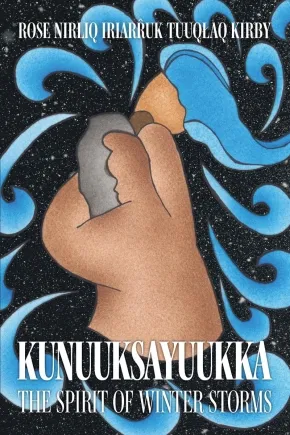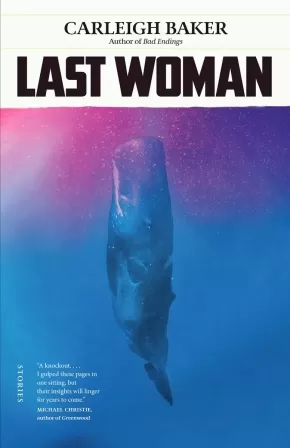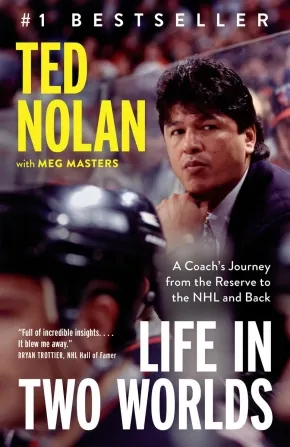
Books
196
-
210
of
1928 Results;
Sort By
Go To
of 129
Îethka: Stories & Language in Stoney Nakoda Country
$37.50
Format:
Paperback
Text Content Territories:
Indigenous Canadian; First Nations; Stoney-Nakoda (Nakota);
ISBN / Barcode: 9781990735455
Synopsis:
Synopsis:
This book features the Stoney Nakoda First Nation language in context and in action. The book contains a collection of stories by Trent and Valentina Fox, with each teaching culminating in a learning section. To assist in nuances of the language, the book also includes audio components as web links. The Îethka Stoney Nakoda People are an integral part of the Treaty 7 group of Indigenous Nations in Southern Alberta. Their spoken language is part of the Dakota-Sioux linguistic group.
Educator Information
Recommended for ages 14 to 18.
Additional Information
144 pages | 6.00" x 9.00" | Paperback
If I Stopped Haunting You
$24.00
Format:
Paperback
Text Content Territories:
Indigenous American;
Reading Level: N/A
ISBN / Barcode: 9781250292902
Synopsis:
Synopsis:
"If you're in the mood for a steamy enemies-to-lovers romance but also a chilling haunted-house horror, GET YOU A BOOK THAT CAN DO BOTH! I blazed through this book in one sitting because I just couldn't wait to find out what would happen next!" - Alicia Thompson, USA Today bestselling author of With Love, from Cold World
An enemies to lovers romance with a spooky twist where two feuding writers end up on a writers retreat together at a haunted castle in Scotland.
It's been months since horror author Penelope Skinner threw a book at Neil Storm. But he was so infuriating, with his sparkling green eyes and his bestselling horror novels that claimed to break Native stereotypes. And now she’s a publishing pariah and hasn’t been able to write a word since. So when her friend invites her on a too-good-to-be-true writers retreat in a supposedly haunted Scottish castle, she seizes the opportunity. Of course, some things really are too good to be true.
Neil wants nothing less than to be trapped in a castle with the frustratingly adorable woman who threw a book at him. She drew blood! Worse still, she unleashed a serious case of self-doubt! Neil is terrified to write another bestselling “book without a soul,” as Pen called it. All Neil wants is to find inspiration, while completely avoiding her.
But as the retreat begins, Pen and Neil are stunned to find themselves trapped in a real-life ghost story. Even more horrifying, they’re stuck together and a truly shocking (extremely hot) almost-kiss has left them rethinking their feelings, and… maybe they shouldn’t have been enemies at all? But if they can’t stop the ghosts pursuing them, they may never have the chance to find out.
Full of spooky chills and even more sexy thrills, If I Stopped Haunting You by Colby Wilkens is the funny, fast-paced romp romance readers have been waiting for!
Reviews
"I devoured this debut by Colby Wilkens! The author writes with such authority and conviction that I really felt like she had lived in a haunted castle in Scotland, just like the characters. Every sentence felt like it was coming from a place of authenticity, which I loved. In addition, the spooky elements are genuinely spooky, the enemies to lovers genuinely enemies, and it all came together beautifully. I didn't realize I needed a romance book married to cozy horror but now I'm wondering where this particular mashup has been all my life. Can't wait to read the next!" - Jessica Clare, New York Times bestselling author
"If I Stopped Haunting You skillfully balances creepiness, difficult conversations, and a lot of steam to deliver readers a satisfying debut and a well-earned Happily Ever After." - Helena Greer, author of Season of Love and For Never and Always
“If I Stopped Haunting You is a complex deep dive into identity, history, and staying true to one’s self that pulls no punches. With a toe curling romance and bone chilling ghosts lurking around every corner, this effortless blend of romance and horror is not to be missed.” - Sonia Hartl, author of Heartbreak For Hire and Rent to Be
"Brimming with angst, heat, and heart, If I Stopped Haunting You is the unputdownable rivals-to-lovers romance I've been craving! Set in a haunted Scottish castle with atmosphere to die for, this is a cozy season must-read. I fell hard for Penelope and Neil as they traversed their differences toward deeper understanding and love–with lots of steam along the way! Writing with thrilling boldness, sparkling wit, and profound care for queer and indigenous representation, Colby Wilkens is a highly necessary and breathtakingly talented fresh voice in romance–meet your new autobuy author." – Courtney Kae, author of In the Event of Love and In the Case of Heartbreak
"Masterfully blends the delicious tension of a great rivals-to-lovers romance with the gothic vibes of a creepy haunted house story. The heat between Penelope and Neil ignites as they untangle their complicated relationship and grow closer together, and the horror elements create some truly memorable moments of forced proximity. If I Stopped Haunting You hooked me from the first page, and I didn't want to put it down when it was over!" -Jenny L Howe, author of On the Plus Side and The Make-Up Test
"If you're in the mood for a steamy enemies-to-lovers romance but also a chilling haunted-house horror, GET YOU A BOOK THAT CAN DO BOTH! Colby Wilkens' debut If I Stopped Haunting You is so inventive and immersive -- I couldn't tell if my shoulders were up by my ears because of the creeping dread of whatever was going on in that castle or because of the electric chemistry between Pen and Neil. I blazed through this book in one sitting because I just couldn't wait to find out what would happen next!" - Alicia Thompson, USA Today bestselling author of With Love, from Cold World
Additional Information
320 pages | 5.38" x 8.25" | Paperback
Incantations Embodied: Rituals for Empowerment, Reclamation, and Resistance
$23.99
Text Content Territories:
Indigenous; Indigenous Peoples in Mexico;
Reading Level: N/A
ISBN / Barcode: 9781955905558
Synopsis:
Synopsis:
Kimberly Rodriguez, a first-generation Xicana Indigena artist, poet, and activist, invites readers on a transformative journey of self-discovery and empowerment through her book, Incantations Embodied: Rituals for empowerment, reclamation, and resistance, serving as a catalyst for reclaiming our stories, truth, and power.
In Incantations Embodied: Rituals for Empowerment, Reclamation, and Resistance, author Kimberly Rodriuguez takes readers on a profound and transformative journey towards self-discovery and empowerment. Within its pages lies a poignant exploration of the human experience, interwoven with elements of spirituality, healing, and personal growth.
At its core, Incantations Embodied serves as a triumphant homecoming—a return to the essence of one's being. It invites readers to embark on a sacred journey, emboldening them to embrace their true selves with unwavering honesty and compassion.
Through Rodriguez's captivating stories, enlightening prose, and enchanting rituals, this book becomes a powerful catalyst for reclaiming our stories, our bodies, our identities, our voices, and ultimately, our power.
In a world where societal norms and expectations often stifle individuality and self-expression, Incantations Embodied stands as a resounding call to break free from these chains. It seeks to dismantle the oppressive narrative that has been ingrained in our collective consciousness, urging us to question and challenge the colonized structures that have kept us disconnected from our own truth.
The book serves as a powerful guide for self-realization, urging individuals to transcend their limitations and embrace their innate potential. With each turn of the page, a profound shift occurs—a blossoming of self-awareness, strength, and resilience.
"Incantations are our liberation. With the power of words, we become conjurers, bringing our wildest dreams to life." - Kimberly Rodriguez
Additional Information
180 pages | 6.00" x 9.00" | Paperback
Indian Burial Ground: A Novel
$37.99
Format:
Hardcover
Text Content Territories:
Indigenous American; Native American;
Reading Level: N/A
ISBN / Barcode: 9780593546888
Synopsis:
Synopsis:
A man lunges in front of a car. An elderly woman silently drowns herself. A corpse sits up in its coffin and speaks. On this reservation, not all is what it seems, in this new spine-chilling mythological horror from the author of Sisters of the Lost Nation.
All Noemi Broussard wanted was a fresh start. With a new boyfriend who actually treats her right and a plan to move from the reservation she grew up on—just like her beloved Uncle Louie before her—things are finally looking up for Noemi. Until the news of her boyfriend’s apparent suicide brings her world crumbling down.
But the facts about Roddy’s death just don’t add up, and Noemi isn’t the only one who suspects that something menacing might be lurking within their tribal lands.
After over a decade away, Uncle Louie has returned to the reservation, bringing with him a past full of secrets, horror, and what might be the key to determining Roddy’s true cause of death. Together, Noemi and Louie set out to find answers...but as they get closer to the truth, Noemi begins to wonder whether it might be best for some secrets to remain buried.
Reviews
"Nick Medina blends myth and reality, supernatural danger and ordinary human menace into a story that will pull your heartstrings even as it shreds your nerves. Like the alligators lurking in its pages, Indian Burial Ground will swallow you whole."—Ana Reyes, New York Times bestselling author of The House in the Pines
"You may arrive at Indian Burial Ground because of author Nick Medina's incredible debut, Sisters of the Lost Nation, or his exceptional story in the bestselling Never Whistle at Night anthology, or perhaps he's a new-to-you author, and now you have the pleasure of reading both of these, but the important thing is you have arrived at an exceptional new novel that lingers long after the last page is turned. From two compelling points of view decades apart, Medina has crafted a story of generational trauma and mythical fears, with deep roots in Native history and modern life, that's part supernatural horror, part mystery, but perhaps most importantly, a story of hope in the darkness." —Vanessa Lillie, USA Today bestselling author of Blood Sisters
"Indian Burial Ground is wonderfully creepy and relentlessly dark. Part adventure narrative, part supernatural horror story, and part eerie mystery, this novel slithers under your skin and makes you wish you knew less with every step it brings you closer to the truth. Nick Medina is waiting in the dark to whisper in your ear about dead things, about the tamahka, about blood and Native mythology. You should let him."—Gabino Iglesias, author of The Devil Takes You Home
"An intense family drama set on the (fictional) Rez where the threat of the mysterious Takoda Vampire makes for a gripping—and creepy!—read. Nick Medina is an Indigenous writer to watch."—Erika T. Wurth, author of White Horse
"Nick Medina’s Indian Burial Ground is an expertly-paced novel, chock-full of Native lore and spine-chilling suspense. When the horror hits, it hits hard."—Jimmy Juliano, author of Dead Eleven
Additional Information
384 pages | 6.19" x 9.30" | Hardcover
Indigenous Child and Youth Care: Weaving Two Heart Stories Together (1 in Stock)
$62.95
Format:
Paperback
Grade Levels: University/College;
ISBN / Barcode: 9781773383712
Synopsis:
Synopsis:
At its core, Indigenous Child and Youth Care: Weaving Two Heart Stories Together is about unity. It seeks to create a heart-to-heart practice by bridging Indigenous ways of knowing with Western Child and Youth Care practices, encouraging students to approach their work with a more open understanding of First Nations, Métis, and Inuit worldviews.
Author Cherylanne James guides students through self-location by dismantling their pre-existing biases regarding Indigenous Peoples, understanding personal privilege and power, educating themselves on Canadian and Indigenous history and contexts, and learning about the pervasive impacts of colonialism. Students will cultivate a practice that encourages ethical spaces of engagement while steering away from surface-level or disingenuous interactions.
The text applies concepts and theories such as relational accountability, interconnectivity, resurgence, community-centred approaches, wise practices, relationship-building, anti-oppression, anti-racist, and social justice frameworks to enrich CYC practices and prepare students to engage with Indigenous children, youth, and families in an informed, meaningful way.
Indigenous Child and Youth Care is designed as a journey, wherein the student reflects while they learn and grow as a CYC professional. It includes a variety of pedagogical features that catalyze thoughtful interaction with the material, such as a glossary, discussion questions, reflective practice question boxes, and additional resources for further learning. This is a powerful and vital text for college and university students in Child and Youth Care and Human Services.
Features
- unites Indigenous worldviews, histories and knowledge systems with western Child and Youth Care practices
- exposes students to pre-existing colonial and racist power structures while introducing them to Indigenous concepts and theories for inclusive practice
- contains a broad variety of pedagogical features, including a glossary, reflective practice questions, discussion questions, activities, and additional resources
Educator Information
Table of Contents
Acknowledgements
Introduction
SECTION 1 CONTEXT FOR INDIGENOUS CHILD AND YOUTH PRACTICES
Chapter 1 Self-Location
Chapter 2 Storying Identity
Chapter 3 Living History
Chapter 4 Wise Practice: The Self (Part 1)
Chapter 5 Wise Practice: Working within Spaces and with Others (Part 2)
SECTION 2 CHALLENGES
Chapter 6 Canadian Child Welfare’s Impact on Indigenous Children, Families, and Communities
Chapter 7 MMIWG2S People and Gender-Based Violence
Chapter 8 Trauma
Chapter 9 Legislation, Calls to Action, and Policy
SECTION 3 CHILD, YOUTH, FAMILY, AND COMMUNITY APPROACHES
Chapter 10 Heart-Centred Practice: Fostering Love through Indigenous Approaches to Child and Youth Work
Chapter 11 Supporting Kinship and Family Relations
Chapter 12 Community Wellness: Land, Water, Language, and Community
Chapter 13 Resurgence and Resistance: Re/Centring Indigenous Children and Youth through Strength-Based Approaches
Closing Heart-to-Heart Practice
Child and Youth Care Certification Board
Glossary
Index
Additional Information
308 Pages | 6.75" x 9.75" | Paperback
Island
$22.00
Format:
Paperback
Text Content Territories:
Indigenous Canadian; First Nations; Mi'kmaq (Mi'gmaq);
Reading Level: N/A
ISBN / Barcode: 9781773103396
Synopsis:
Synopsis:
“Canada rejected our applications for enrolment in the Qalipu First Nation. Initially, I was relieved by the rejection. I’d watched my hometown divide itself — are you Mi′kmaq or settler? Mi′kmaq or not Mi′kmaq enough?”
Centred around the Newfoundland Mi'kmaq experience in the wake of the controversial Qalipu First Nation enrolment process, Island wades through the fracture and mistrust that continues to linger in many communities. In this new collection, Douglas Walbourne-Gough expands upon issues of identity and history that he introduced in Crow Gulch, offering a deeply personal and equally beautiful exploration of Mi'kmaw and Newfoundland identity.
Walbourne-Gough’s narrative poems trace the formation of identity, not through status documentation, but through its deeper roots in childhood memories, family, spirituality, and dreams. Throughout this collection, he approaches life in fragments — snuggling into his nan’s sealskin snowsuit, learning Mi'kmaq from an app, or the myriad of complex emotions that come with receiving a status card — and watches them transform into pieces of an everlasting puzzle. Island reckons with an often-ignored, yet persistent, effect of colonialism — fractured identities.
Additional Information
80 pages | 5.50" x 8.50" | Paperback
Isúh Áníi / As Grandmother Said: Dátl'ìshí Ts'ìká áa Guunijà / The Narratives of Bessie Meguinis
$24.95
Format:
Paperback
Text Content Territories:
Indigenous Canadian; First Nations; Dene; Tsuut’ina (Tsuu T'ina, Sarcee);
Grade Levels: 12; University/College;
ISBN / Barcode: 9780889779853
Synopsis:
Synopsis:
The first book published in Tsuut’ina—a critically endangered language—in over a century!
With fewer than 150 speakers, Tsuut’ina is a critically endangered language. Isúh Áníi / As Grandmother Said brings together nine traditional narratives and historical accounts in the Tsuut’ina language, originally narrated by Elders Dátł’ìshí Ts’ìká Bessie Meguinis (1883–1987) and Ninàghá Tsìtł’á Willie Little Bear (1912–1989). At once an act of language preservation and a learning resource, each story is retold in Tsuut’ina by Dit’óní Didlíshí Dr. Bruce Starlight and is presented with English translations and a Tsuut’ina-to-English glossary.
The narratives included in this collection cover considerable ground, ranging from the creation of the world in the caring hands of Xàlítsa-tsii and his animal helpers, to accounts of separation, migration, and cross-cultural contact that mark major turning points in Tsuut’ina history, and to important cultural and ceremonial items and practices that the Tsuut’ina Nation maintains to this day.
These stories will be of lasting value to Tsuut’ina language learners and teachers, and will share the legacy of Elders Bessie Meguinis and Willie Little Bear with generations of Tsuut’ina to come.
Educator & Series Information
This book is part of the First Nation Language Readers series. With a mix of traditional and new stories, each First Nations Language Reader introduces an Indigenous language and demonstrates how each language is used today.
Additional Information
186 pages | 5.50" x 8.50" | Paperback
It Stops Here: Standing Up for Our Lands, Our Waters, and Our People (PB)
$24.00
Format:
Paperback
Text Content Territories:
Indigenous Canadian; First Nations; Salish; Coast Salish; Tsleil-Waututh;
ISBN / Barcode: 9780735242821
Synopsis:
Synopsis:
A personal account of one man’s confrontation with colonization that illuminates the philosophy and values of a First Nation on the front lines of the fight against an extractive industry, colonial government, and threats to the life-giving Salish Sea.
It Stops Here is the profound story of the spiritual, cultural, and political resurgence of a nation taking action to reclaim their lands, waters, law, and food systems in the face of colonization. In deeply moving testimony, it recounts the intergenerational struggle of the Tsleil-Waututh Nation to overcome colonial harms and the powerful stance they have taken alongside allies and other Indigenous nations across Turtle Island against the development of the Trans Mountain Pipeline—a fossil fuel megaproject on their unceded territories.
In a firsthand account of the resurgence told by Rueben George, one of the most prominent leaders of the widespread opposition to the Trans Mountain Pipeline expansion, It Stops Here reveals extraordinary insights and revelations from someone who has devoted more than a decade of his life to fighting the project. Rueben shares stories about his family’s deep ancestral connections to their unceded lands and waters, which are today more commonly known as Vancouver, British Columbia and the Burrard Inlet. He discloses how, following the systematic cultural genocide enacted by the colonial state, key leaders of his community, such as his grandfather, Chief Dan George, always taught the younger generations to be proud of who they were and to remember the importance of their connection to the inlet.
Part memoir, part call to action, It Stops Here is a compelling appeal to prioritize the sacred over oil and extractive industries, while insisting that settler society honour Indigenous law and jurisdiction over unceded territories rather than exploiting lands and reducing them to their natural resources.
Additional Information
288 pages | 5.13" x 7.98" | 31 b+w images throughout | Paperback
Jeremy Frey: Woven
$67.50
Format:
Hardcover
Text Content Territories:
Indigenous American; Native American; Passamaquoddy (Peskotomuhkati);
ISBN / Barcode: 9780847899708
Synopsis:
Synopsis:
The only book on award-winning Indigenous basket maker Jeremy Frey, accompanying his first major traveling exhibition.
Frey (Passamaquoddy) is one of the most respected Indigenous basket makers working today. Descended from a long line of basket makers, his work is known for its intricate design and exquisite artistry, which reflect both traditional techniques and his own creative vision.
This catalogue considers his work from a variety of perspectives. Secord, whom Frey credits for guiding his career as the founder of Maine Indian Basketmakers Alliance, contributes a detailed biographical essay. DeSimone situates Frey’s work in the broader field of contemporary art, with a specific focus on the new video work he is making for the exhibition. Hoska focuses on Frey’s art in the broader context of Native basket and fiber arts. And Mize considers the ways in which his expanding practice registers ecological knowledge, time, and the impact of climate change.
Additional Information
160 pages | 8.85" x 11.91" | Hardcover
Journey to Eloheh: How Indigenous Values Lead Us to Harmony and Well-Being
$37.99
Format:
Hardcover
Text Content Territories:
Indigenous American; Native American; Shoshone; Eastern Shoshone Tribe; Cherokee; United Keetoowah Band ;
ISBN / Barcode: 9781506496979
Synopsis:
Synopsis:
Rooted in ten Indigenous values, this thoughtful, holistic book-written by Randy Woodley, a Cherokee descendant recognized by the Keetoowah Band, and Edith Woodley, an Eastern Shoshone tribal member-helps readers learn lifeways that lead to true wholeness, well-being, justice, and harmony.
The pursuit of happiness, as defined by settlers and enshrined in the American Dream, has brought us to the brink: emotionally, spiritually, socially, and as a species. We stand on a precipice, the future unknown. But Indigenous people carry forward the values that humans need to survive and thrive. In Journey to Eloheh, Randy and Edith Woodley help readers transform their worldviews and lifestyles by learning the ten values of the Harmony Way. These ten values, held in common across at least forty-five Indigenous tribes and nations, can lead us toward true well-being: harmony, respect, accountability, history, humor, authenticity, equality, friendship, generosity, and balance. By learning, converting to, and cultivating everyday practices of Eloheh--a Cherokee word meaning harmony and peace--we have a chance at building well-being and a sustainable culture.
In this riveting account of their own journeys toward deepening their indigeneity and embodying harmony, Edith, an activist-farmer, and Randy, a scholar, author, teacher, and wisdom-keeper, help readers learn the lifeways of the Harmony Way. The journey to Eloheh holds promise for all of us, Indigenous or not.
We know the Western worldview is at odds with a sustainable Earth, a just common life, and personal well-being. Together we can convert to another way of living--one that recognizes the Earth as sacred, sees all creation as related, and offers ancestral values as the way forward to a shared future.
Reviews
"Edith and Randy Woodley's passion and persistence to create spaces of community and care are inspiring. A blend of storytelling, theology, and guidance harvested directly through Indigenous wisdom, Journey to Eloheh reminds us to stay true to the path of kinship and belonging, and to never give up on justice and peacemaking in the world. I highly recommend this book for anyone who is searching for a way to be a better relative on this earth or to fight for a better reality for future generations. This book will help you get there." --Kaitlin B. Curtice, award-winning author of Native and Living Resistance
"Spiritual journey as autobiography: like a Navajo weaver, Journey to Eloheh skillfully connects Native American theology and personal experience into a way of life. If you are looking for your own path, Edith and Randy Woodley's story is a good place to begin." --Steven Charleston, author of Ladder to the Light, Spirit Wheel, and We Survived the End of the World
"There is so much we can all learn from the wisdom of Indigenous culture. In this book, Randy and Edith Woodley invite us to join them on a journey of learning a different way of living that leads to wholeness, abundance, and peace. They generously share their life experience and spiritual insights to show us a better path toward harmony with the whole of creation. I highly recommend it!" --Dr. Brenda Salter McNeil, author of Becoming Brave and Roadmap to Reconciliation 2.0
"A practical antidote to despair, hopelessness, and aimless consumption, this book offers a robust and healing path to well-being for all of us. The Woodleys are wise and trustworthy guides for restoration and embodied goodness within the community of creation." --Sarah Bessey, author of Field Notes for the Wilderness: Practices for an Evolving Faith
"Randy and Edith Woodley write with insight and wisdom from their years of experience. They have prophetic voices that draw attention to the needs of all of our relatives. Their voices rise out of difficult situations in which they have done more than survive; they are showing how to flourish in an ever-changing world." --Ray Aldred, director of the Indigenous Studies Program, Vancouver School of Theology
"For many years, I have considered Randy Woodley one of my teachers. His books, lectures, and personal conversations--together with his humble, yet bold, spirit as a teacher--have enriched and challenged me. His new book, co-written with his wise and eloquent wife, Edith, is a masterpiece, a book I would recommend to anyone and everyone. It beautifully combines the sharing of their life-story with the essence of their lifeway, articulated in ten powerful Indigenous values that are as deeply spiritual as they are deeply practical." --Brian McLaren, author, teacher, and activist
Educator Information
Keywords / Themes: Well-Being; the Harmony Way (Eloheh); Ten Eloheh Values; Indigenous Knowledge, Indigenous Values; Personal Growth.
Additional Information
264 pages | 5.75" x 8.75" | Hardcover
Kunuuksayuukka: The Spirit of Winter Storms
$25.95
Format:
Paperback
Text Content Territories:
Indigenous Canadian; Inuit; Inuvialuit (Mackenzie Inuit);
Reading Level: N/A
ISBN / Barcode: 9780981262710
Synopsis:
Synopsis:
Kunuuksayuukka: The Spirit of Winter Storms is a story of Inuvialuk (Western Arctic Inuk) Elder Rose Kirby's early life, beginning from her vibrant traditional life on the land, to being taken away on a "ship of tears" to residential school in Aktlarvik (Aklavik), before moving around different DEW Line sites following her father Joseph Saraana Thrasher's work. Known for her powerful memory and storytelling skills, Rose vividly recounts stories from her childhood and even infancy.
Kunuuksayuukka: The Spirit of Winter Storms honours the important lessons that Rose has learned from her Elders and family, through watching how they interacted with one another, as well as with the larger natural world. Rose uses Kunuuksayuukka-the spirit of winter storms-and its slow disappearance from her life, to describe her own transition from traditional, nomadic life on the land to moving into housing settlements created by tan'ngit (white people).
Through almost 300 pages, Rose's book weaves through candid stories of human relationships, loss, love and care for one another, humour, pain, strength, and resilience. Most importantly, it is a heartfelt tribute to Inuvialuit culture, language, history, life, and experiences-all through the eyes of an Inuvialuk who has learned to move with the changing world as she grew up. This book is a must-read for anyone who wants to learn about how Inuvialuit lived long ago.
Additional Information
6.00" x 9.00" | 25 b&w photographs | Paperback
La septième direction Plan de cours
$7.99
Artists:
Text Content Territories:
Indigenous American; Native American; Sioux; Lakota; Indigenous Canadian; First Nations; Sioux; Lakota;
ISBN / Barcode: 9781778540462
Synopsis:
Synopsis:
Un plan de lecon de l'enseignant pour approfondir le livre, La septième direction. Peut inclure des questions de compréhension, des activités de groupe, des amorces de conversation, des quiz, des activités d’arts du langage et des pages à colorier. Dans cette légende éclairante que nous raconte l’Aîné lakota Kevin Locke, Wak?á? T?á?ka (le Grand Esprit) a créé le monde entier en sept jours, gardant la création la plus précieuse pour la fin. Pour protéger cette précieuse création, Wak?á? T?á?ka devait la cacher dans un endroit où elle serait toujours en sécurité et a demandé à nos parents animaux de l’aider. Ensemble, ils ont trouvé l’endroit parfait. Quel endroit ont-ils choisi?
Educator Information
Recommended for use with students ages 7 to 10.
Find the student resource in French here: La septième direction: une légende de la création
This lesson plan is available in English: The Seventh Direction Teacher Lesson Plan.
Additional Information
25 pages | 8.15" x 9.53" | Paper Packet
Last Woman: Stories
$24.95
Format:
Paperback
Text Content Territories:
Indigenous Canadian;
Reading Level: N/A
ISBN / Barcode: 9780771004148
Synopsis:
Synopsis:
From one of the country’s most celebrated new writers, a blistering collection of short fiction that is bracingly relevant, playfully irreverent, and absolutely unforgettable.
There’s a hole in the ozone layer. Are teenage girls to blame?
Floods and wildfires, toxic culture, billionaires in outer space, or a purse-related disaster while on mushrooms—in today’s hellscape world, there’s no shortage of things to worry about. Last Woman, the new collection of short fiction by award-winning author Carleigh Baker, wants you to know that you’re not alone. In these 13 brilliant new stories, Baker and her perfectly-drawn characters are here for you—in fact, they’re just as worried and weirded-out as everyone else.
A woman’s dream of poetic solitude turns out to be a recipe for loneliness. A retiree is convinced that his silence is the only thing that will prevent a deadly sinkhole. An emerging academic wakes up and chooses institutional violence. A young woman finds sisterhood in a strange fertility ritual, and an enigmatic empath is on a cleanse. Baker’s characters are both wildly misguided and a product of the misguided times in which we live. Through them we see our world askew and skewered—and, perhaps, we can begin to see it anew.
Carleigh Baker’s signature style is irreverent, but her heart is true—these stories delve into fear for the future, intergenerational misunderstandings, and the complexities of belonging with sharp wit and boundless empathy. With equal parts compassion and critique, she brings her clear-eyed attention to bear on our world, and the results are hilarious, heartbreaking, and startling in their freshness.
Reviews
“Carleigh Baker’s Last Woman is a knockout. These fifteen stories are probing contemplations on technology, the climate crisis, childhood, adulthood, parenthood, dreams, identity, creativity, and those staggering moments when the uncanny burbles up through the cracks of everyday experience. I gulped these pages in one sitting, but their insights will linger for years to come.”—Michael Christie, author of Greenwood
“Carleigh Baker’s Last Woman is a satirical, energetic look at our messed-up world. The stories in this collection ask original, surprising what-if questions, exploring disasters small and large, personal and public, and the past, present, and future of this planet—and beyond. I’m so impressed with Baker’s ability to craft such a range of voices, by turns funny and vulnerable and exuberant and idiosyncratic. These stories are inventive, a little weird, and very, very cool.”—Shashi Bhat, author of The Most Precious Substance on Earth
Additional Information
208 pages | 5.18" x 8.00" | Paperback
Les pensionnats indiens: Effets dévastateurs sur les peuples autochtones du Canada et appels à l'action de la Commission de vérité et réconciliation
$45.00
Format:
Paperback
Text Content Territories:
Indigenous Canadian; First Nations; Inuit; Métis;
ISBN / Barcode: 9781459419667
Synopsis:
Synopsis:
The award-winning Righting Canada's Wrongs series is now available in French for Immersion classrooms.
Canada’s residential school system for Indigenous children is now recognized as a grievous historic wrong committed against First Nations, Métis and Inuit peoples. Through historical photographs, documents and first-person narratives from people who survived residential schools, this book offers an account of the injustice of this period in Canadian history. It documents how official racism was confronted and finally acknowledged.
In 1857, the Gradual Civilization Act was passed in Canada with the aim of assimilating Indigenous people. In 1879, Prime Minister Sir John A. Macdonald commissioned a report that led to residential schools across Canada. First Nations and Inuit children were taken from their families and sent to residential schools where they were dressed in uniforms, their hair was cut, they were forbidden to speak their native language and they were often subjected to physical and psychological abuse. The schools were run by churches and funded by the federal government.
The last federally funded residential school closed in 1996. The horrors that many children endured at residential schools did not go away. It took decades for people to speak out, but with the support of the Assembly of First Nations and Inuit organizations, former residential school students took the federal government and the churches to court.
Their cases led to the Indian Residential Schools Settlement Agreement, the largest class-action settlement in Canadian history. In 2008, Prime Minister Harper formally apologized to former native residential school students for the atrocities they suffered and the role the government played in setting up the school system. The agreement included the Truth and Reconciliation Commission, which has worked to document the experience. More than five years after the TRC Report was released, there have been reports of unmarked graves of children being discovered at the site of former residential schools. This updated edition includes some of those findings and examines what has and what still has to be done in regards to the TRC Report’s Calls to Action.
Educator & Series Information
This French book is part of the series Redresser les torts du Canada (Righting Canada's Wrongs series).
Recommended for ages 13 to 18.
This book is available in English: Righting Canada's Wrongs: Residential Schools: The Devastating Impact on Canada's Indigenous Peoples and the Truth and Reconciliation Commission's Findings and Calls for Action
Additional Information
8.50" x 11.69" | 300 Photographs | Paperback
Life in Two Worlds: A Coach's Journey from the Reserve to the NHL and Back (PB)
$23.00
Format:
Paperback
Text Content Territories:
Indigenous Canadian; First Nations; Anishinaabeg; Ojibway; Ketegaunseebee (Garden River First Nation);
Reading Level: N/A
ISBN / Barcode: 9780735244979
Synopsis:
Synopsis:
In 1997 Ted Nolan won the Jack Adams Award for best coach in the NHL. But he wouldn’t work in pro hockey again for almost a decade. What happened?
Growing up on a First Nation reserve, young Ted Nolan built his own backyard hockey rink and wore skates many sizes too big. But poverty wasn’t his biggest challenge. Playing the game meant spending his life in two worlds: one in which he was loved and accepted and one where he was often told he didn’t belong.
Ted proved he had what it took, joining the Detroit Red Wings in 1978. But when his on-ice career ended, he discovered his true passion wasn’t playing; it was coaching. First with the Soo Greyhounds and then with the Buffalo Sabres, Ted produced astonishing results. After his initial year as head coach with the Sabres, the club was being called the “hardest working team in professional sports.” By his second, they had won their first Northeast Division title in sixteen years.
Yet, the Sabres failed to re-sign their much-loved, award-winning coach.
Life in Two Worlds chronicles those controversial years in Buffalo—and recounts how being shut out from the NHL left Ted frustrated, angry, and so vulnerable he almost destroyed his own life. It also tells of Ted’s inspiring recovery and his eventual return to a job he loved. But Life in Two Worlds is more than a story of succeeding against the odds. It’s an exploration of how a beloved sport can harbour subtle but devastating racism, of how a person can find purpose when opportunity and choice are stripped away, and of how focusing on what really matters can bring two worlds together.
Reviews
"Full of incredible insights into a tough life that Teddy’s perseverance turned into inspiration. It blew me away.”—Bryan Trottier, NHL Hall of Famer
“Ted’s beautiful memoir follows a trail of losses and the pain of getting well, and his stunning successes, lifting trophies, lifting lives. Ted was able to reach so many things, but his truth went beyond these things, and it’s the story of how he went beyond, to keep what was true in front of him that makes this book so enjoyable, and so important.”—Ron MacLean, CBC sportscaster and host of Hockey Night in Canada
“Ted Nolan’s story is truly remarkable. Ted persevered and overcame significant obstacles at a time when Indigenous people were not encouraged, applauded, or even wanted in elite hockey leagues. Ted broke barriers, battled racism, worked hard, and not only became an NHL player but also an elite junior, NHL, and international coach. Ted paved the way for many Indigenous youth to not only participate, but succeed in hockey arenas across North America and Europe as coaches and players.”—Phil Fontaine, former National Chief of the Assembly of First Nations
“Playing for Ted Nolan is one of my fondest memories. People called us “The Hardest Working Team in Hockey” and that doesn’t happen without a coach who can show each player their purpose and prove his belief in them. We all played beyond our own abilities for Ted. We led the NHL in penalty minutes and no team wanted to play us in our building. I respect Ted as a coach both on and off the ice, and this book gives a hint of why he inspires that in players and in people in general.”—Rob Ray, broadcaster and former NHLer
“Teddy was my favourite coach, mentor and friend. I love Ted Nolan. This book gives a good sense of what makes him so special.”—Brad May, former NHLer, Stanley Cup winner, and AT&T SportsNet analyst
“My father was so proud of Ted; he understood what he was going through. A story of perseverance, Life in Two Worlds is a great read for any generation."—Neil Sasakamoose, son of Fred Sasakamoose, the NHL’s first Treaty Indigenous player and bestselling author of Call Me Indian
Additional Information
336 pages | 5.11" x 7.97" | 8-page colour insert | Paperback
Sort By
Go To
of 129

